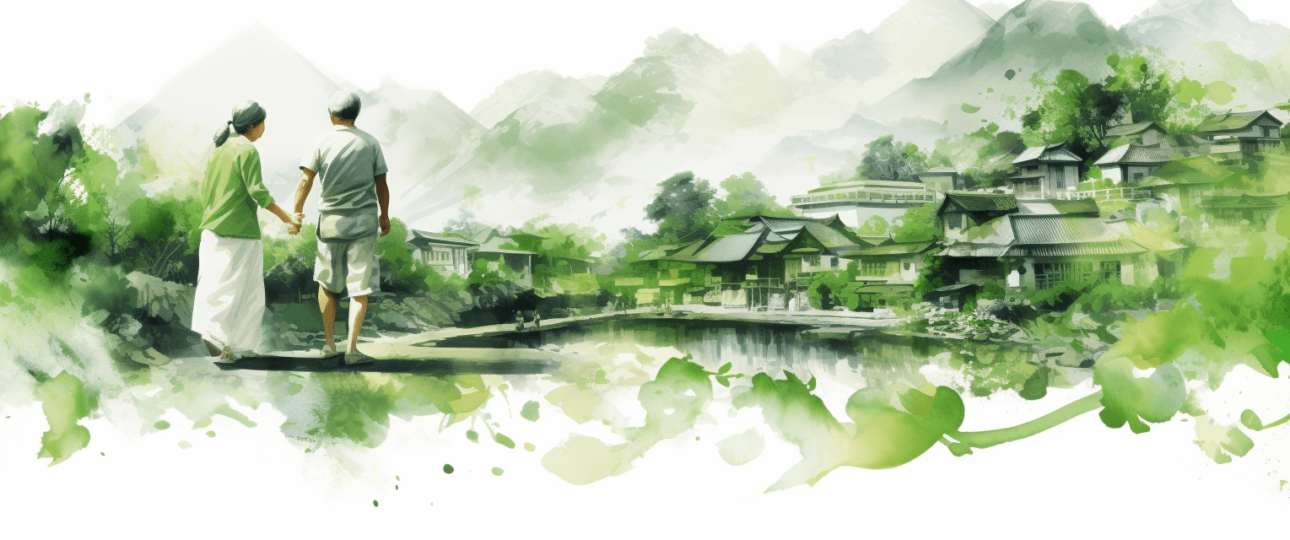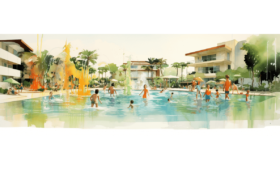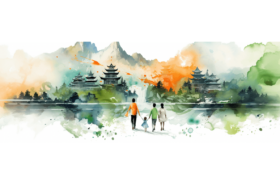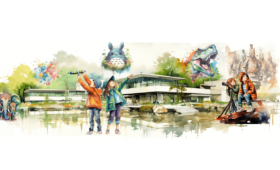Travel has the extraordinary ability to expand our horizons, offering fresh perspectives and enriching experiences at any stage of life. For senior travelers, embarking on a journey can be particularly rewarding, serving as a delightful escape and an important means of staying active, engaged, and stimulated. In this article, we have 10 Senior-friendly travel tips ready for you to know better when traveling to Asia. With its vibrant tapestry of cultures, histories, and landscapes, Asia presents a world of wonder awaiting discovery.
Pre-Trip Planning Tips
Embarking in one’s golden years is an exciting endeavor, especially within Asia’s diverse and vibrant lands. However, to ensure a comfortable and memorable experience, seniors must give special attention to pre-trip planning. Here’s a closer look at what needs to be considered:
Selecting the Destination
Choosing the right destination is paramount. Seniors should consider their interests, the pace at which they’d like to travel, and any physical limitations. Some may prefer the serene beauty of the Japanese countryside with its well-established infrastructure, while others might be drawn to the historical wonders of China. It’s important to research and select destinations with a reputation for being safe and welcoming to older travelers.
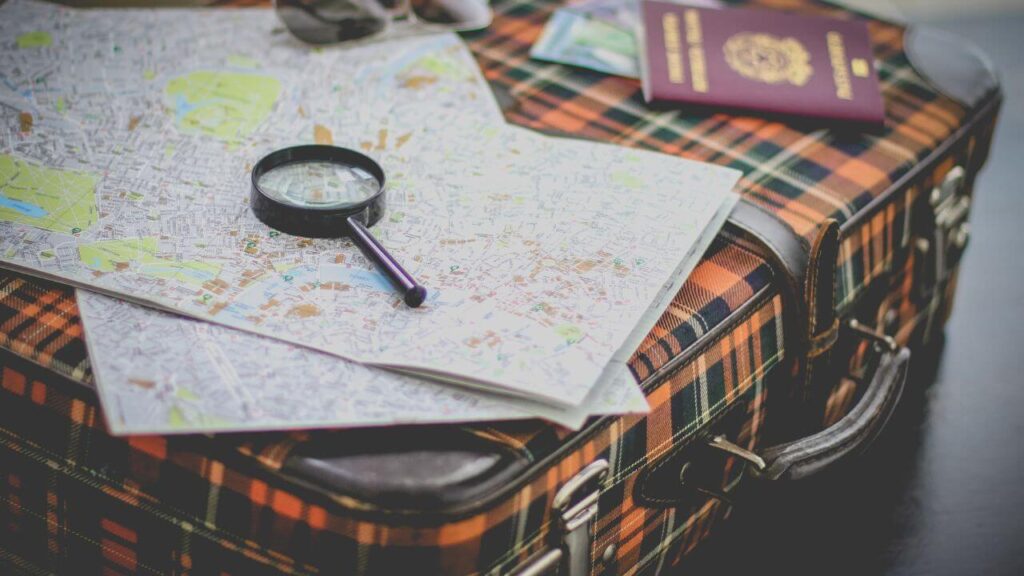
Climate Considerations
Asia’s climate is as varied as its cultures, ranging from the frigid Siberian tundra to the tropical beaches of Southeast Asia. Seniors should consider when to travel, aiming for milder seasons to avoid extreme heat or cold, which can tax the body. The monsoon season, with its heavy rainfall, should also be considered, as it may affect mobility and access to certain areas.
Terrain and Accessibility in Asia
Asia is a continent of contrasting geographies. The terrain can vary significantly, from the rugged Himalayas to the bustling, high-tech cities. Seniors should seek destinations with well-developed infrastructure that facilitates mobility, including reliable public transportation and pedestrian-friendly streets. In addition, when exploring historical sites, it’s essential to check for the availability of amenities like elevators and ramps that bypass stairs or steep paths.
Cultural and Language Factors
Understanding a destination’s cultural norms and language basics can significantly enhance the travel experience. Seniors should familiarize themselves with the cultural etiquette to show respect and avoid misunderstandings. Learning a few phrases in the local language can also be immensely helpful, not just for day-to-day interactions but also in cases of emergency. In countries where English is not widely spoken, it’s prudent to write key phrases down in the local script to show locals when seeking help.
The allure of Asia’s diverse cultures and breathtaking sceneries is inviting for senior travelers. Still, it’s the thoughtful pre-trip planning that will ensure the journey is not just possible but also profoundly rewarding. It’s about balancing the spirit of adventure with the wisdom of experience—planning well to enjoy every moment to the fullest.
Travel Insurance
Travel insurance is a critical component of planning a trip, especially for senior travelers heading to Asia. It provides a safety net that can make all the difference in handling unexpected situations. Here are two key aspects of travel insurance that seniors should consider:
Coverage for Pre-Existing Conditions
It’s common for travel insurance policies to have exclusions for pre-existing medical conditions; however, this is a significant concern for many senior travelers who often have ongoing health issues. Seniors need to look for a policy that provides coverage for pre-existing conditions, ensuring they will receive necessary care without facing exorbitant medical bills.
When shopping for a policy, seniors should thoroughly disclose their medical history to ensure that the coverage meets their specific health needs. Some insurers offer “waivers for pre-existing conditions,” which, if purchased within a specific time frame after booking the trip, may cover medical treatment for those conditions. Reading the fine print and understanding the limitations and requirements of these waivers or coverages is crucial.

Emergency Evacuation and Repatriation
The importance of emergency evacuation coverage cannot be overstated, particularly in less accessible areas of Asia where quality medical facilities may not be available. This aspect of travel insurance ensures that a traveler can be transported quickly to a facility that can provide the required level of care, whether that’s to a hospital in a major city within the country or an entirely different country.
Repatriation coverage is equally important as it allows a traveler to be brought back to their home country for medical care or, in the worst-case scenario, ensures that remains are returned home in the event of death. This coverage is not just about logistics and costs; it’s also about the peace of mind for both the traveler and their loved ones.
In evaluating policies, seniors should verify that the coverage limits for both evacuation and repatriation are sufficient to cover the actual costs, which can be significant in emergencies. It is also wise to understand how these services are coordinated—whether the insurance company directly provides services or reimburses the costs, and how easily they can be reached in an emergency.
When purchasing travel insurance, seniors should work with reputable companies and seek recommendations from other travelers who have had first-hand experiences with needing to use their insurance in Asia. It’s essential to have clear, reliable channels for assistance and claims and to understand the extent and limitations of coverage. With the right travel insurance in place, senior travelers can enjoy the marvels of Asia with greater confidence and tranquility.
Documentation
When traveling to Asia, the correct documentation is as essential as packing your suitcase. Like all travelers, seniors must have their paperwork to ensure a hassle-free journey. Here’s a breakdown of the vital documentation considerations:
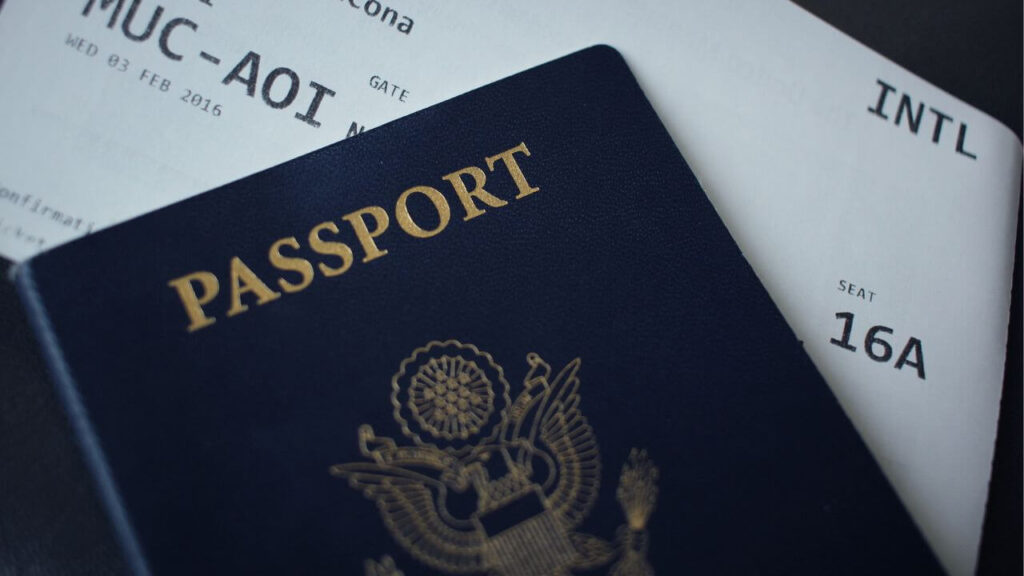
Passport and Visa Requirements
A valid passport is a universal requirement for international travel. Seniors should ensure that their passport has at least six months of validity beyond their planned return date, as this is a common requirement for many Asian countries. Moreover, they need to check the visa requirements for their chosen destination well before their trip, as some countries may require visas to be arranged before arrival.
Depending on the destination, there may be visa options on arrival or e-visas, which can be applied online. Using official government websites for these applications is important to avoid scams. Seniors may also benefit from seeking assistance from a visa service or their travel agent to navigate complex application processes.
Copies of Important Documents
It’s always prudent to have several copies of all important documents. Seniors should make photocopies of their passport’s identification page, visas, travel insurance policy, flight itineraries, hotel reservations, and any other essential travel documents. These copies should be kept separate from the originals in case of loss or theft.
In the digital age, storing electronic copies in a secure but accessible location, such as an email account or cloud-based storage service, can be invaluable. This ensures that even if all physical copies are lost, documentation can be retrieved from any location with internet access.
Emergency Contact Information
Seniors should carry a list of emergency contacts, including family members, friends, doctors, and anyone else who should be notified in an emergency. This list should include country codes and be formatted in a way that can be understood by local authorities in Asia.
Additionally, seniors should have the contact information for their home country’s embassy or consulate within the country they are visiting. Embassies and consulates can be crucial resources in emergencies, assisting with lost passports, medical emergencies, or legal issues.
It is also wise to know the contact details of local emergency services for each country visited, as the universal emergency number (911) is not used everywhere. Many Asian countries use “112” as a general emergency number, but this can vary, so it’s important to confirm the correct numbers upon arrival. Here is a list of emergency numbers.

Having all necessary documentation organized and accessible can make all the difference in handling unexpected situations calmly and efficiently. Before departure, seniors should double-check all their documents to ensure everything is up to date and in order, allowing them to focus on the joy of their travels rather than the paperwork.
Health Preparations
Traveling to Asia can be an enriching experience, but it requires careful health preparation, especially for seniors who may be more susceptible to health issues while abroad. Here’s what senior travelers need to consider:
Vaccinations and Medications
Before traveling to Asia, it’s important for senior travelers to consult with a travel health specialist or their primary care physician to discuss which vaccinations are recommended or required for their destination. Commonly recommended vaccinations for Asia may include those for hepatitis A and B, typhoid, Japanese encephalitis, and sometimes rabies, along with routine vaccinations for influenza and shingles.
Seniors should ensure they are current with their regular vaccinations and discuss the need for any boosters. Those taking prescription medications should have enough to last the entire trip, plus some extra in case of unexpected delays. Medications should be kept in their original containers with clear labels, and it’s wise to carry a copy of the prescription and a letter from the physician detailing the necessity of the medication, especially if it’s a controlled substance.

Health Check-Ups and Travel Fitness
A comprehensive health check-up is a good idea to ensure fitness to travel. This can identify any potential health issues that the rigors of travel might exacerbate. During the check-up, seniors can discuss with their doctor any concerns about the trip, such as the effect of long flights, altitude, or pre-existing medical conditions.
Seniors should also consider their physical fitness and any activities they plan to undertake while in Asia. For example, if the trip will involve a lot of walking or climbing stairs, it might be beneficial to do some preparatory exercise before the trip.
Packing a Health Kit
A personalized health kit is essential for senior travelers. This kit should include:
- First aid items such as band-aids, antiseptic wipes, and gauze.
- Over-the-counter medications for common travel-related ailments like diarrhea, constipation, motion sickness, and pain or fever (such as acetaminophen or ibuprofen).
- Any specific over-the-counter medications they use regularly, like antacids or allergy medications.
- Hand sanitizer and a small supply of face masks, particularly in regions where air quality may be an issue or in crowded places.
- Sunscreen and a hat for protection against strong sun.
- Insect repellent, especially if traveling to areas with a risk of mosquito-borne illnesses.
In addition to these preparations, seniors should be aware of the quality of medical care available at their destination in Asia. Researching hospitals or clinics nearby and understanding how to access pharmacy services can make managing health on the road much smoother.
By taking care of health logistics well in advance and preparing for possible scenarios, senior travelers can minimize health-related disruptions and enjoy their Asian adventures to the fullest.
Accommodations
Securing the right accommodations is a key part of travel planning for seniors, ensuring comfort and peace of mind during their stay in Asia. Here are important accommodation features that senior travelers should consider:
Accessibility Features
Accessibility is a crucial factor in choosing accommodations for senior travelers. They should look for hotels or lodgings that provide rooms specifically designed for guests with limited mobility. This includes features such as:
- No-step entryways or ramps
- Elevators or rooms on the ground floor if no elevator is available
- Grab bars and non-slip mats in the bathroom
- Walk-in showers or baths with accessible design
- Wide doorways and hallways to accommodate walkers or wheelchairs
- Emergency pull cords or buttons in the rooms
- When booking, it’s essential to contact the accommodation directly to confirm that these features are available and to request a room that meets these needs.

Proximity to Medical Facilities
Staying close to quality medical facilities can provide peace of mind, particularly for seniors with pre-existing health conditions. In case of a medical emergency, having a hospital or clinic nearby can make all the difference. When researching accommodations, seniors should note the nearest hospitals with emergency services and check the routes to get there. Some hotels even have on-call doctors or medical professionals available, which can be a significant advantage.
Senior-Friendly Amenities
Aside from the basic amenities, senior travelers should look for accommodations that offer services catering to the needs of older guests, such as:
- Quiet rooms away from noisy areas
- Comfortable, high-quality mattresses and pillows for a good night’s sleep
- Rooms with a clear, well-lit path to the bathroom to prevent falls during the night
- Buffet or restaurant options that provide nutritious, senior-friendly food choices, including options for those with special dietary needs
- Leisure amenities such as pools with easy entry (steps or ramps), hot tubs, or spas which can be particularly therapeutic
- Social activities or tours that are suited for seniors, offering cultural enrichment without physical strain
Additionally, some accommodations may provide transport services for seniors, including assistance to and from the airport and shuttle services to nearby attractions or shopping areas.
It’s also beneficial to read reviews from other senior travelers who have stayed in the prospective accommodations to understand their experiences and satisfaction with the facilities and services offered.
By ensuring that their accommodations are well-suited to their needs, senior travelers can enjoy a comfortable, convenient, and worry-free stay, allowing them to focus on enjoying their travels and the new experiences that await in Asia.
Transportation
Navigating transportation effectively is vital for senior travelers to ensure a smooth and comfortable journey, especially when traversing Asia’s vast and varied landscapes. Here are some transportation tips to keep in mind:
Booking Direct Flights or Allowing Ample Time Between Flights
Booking direct flights can greatly reduce the stress and physical strain associated with layovers and plane changes whenever possible. Direct flights minimize the need for rushing through airports, dealing with multiple security checks, and the added fatigue from longer travel times. If direct flights are not available or practical, it is important to allow plenty of time between connecting flights. Seniors should consider scheduling a longer layover to give themselves time to navigate the airport, rest, have a meal, and arrive at the departure gate without hurry.
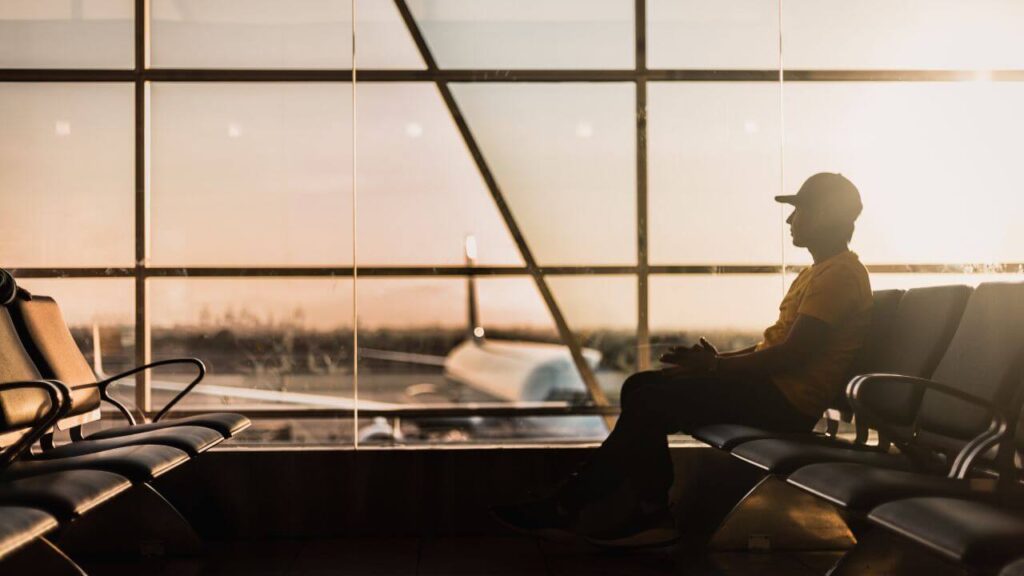
Senior Discounts and Facilities
Many transportation services offer discounts for senior travelers, which can make traveling more affordable. When booking flights, trains, buses, or ferries, seniors should inquire about these discounts. Additionally, airports and train stations often have facilities to aid senior travelers, such as dedicated check-in counters, priority boarding, and special assistance services. It’s advisable to request these services at the time of booking or check-in. For instance, if mobility is a concern, arranging for a wheelchair service to help navigate through an airport can be arranged in advance.
Comfort and Mobility Services
Comfort during transit is important for everyone, but it’s especially so for seniors who may have chronic pain or mobility issues. Seniors should consider the following when planning transportation:
Seat selection: Opting for aisle seats for easier access, extra legroom seats, or even considering class upgrades for more comfortable seating can make a big difference in travel comfort.
Mobility services: Besides airport wheelchairs, look for transportation options that provide assistance with luggage or allow pre-boarding, so there’s no need to navigate through crowded aisles.
Rest stops: For longer ground travel, ensure ample rest stops to stretch, use restrooms, and move around to prevent stiffness and discomfort.
Accessible transportation options: In some Asian cities, public transport can be crowded and not always friendly to those with mobility impairments. Private transportation options with professional drivers familiar with the needs of senior travelers can provide a more comfortable and stress-free experience.
Moreover, travel comfort isn’t just physical. It extends to having clear travel itineraries, accessible customer support for inquiries or help, and, where necessary, the availability of English-speaking staff or information in multiple languages.
Ensuring transportation arrangements that account for comfort, mobility, and convenience can significantly enhance the travel experience for seniors, allowing them to conserve their energy to enjoy the sights and experiences of their Asian destinations.
Packing Essentials
When embarking on a journey to Asia, packing efficiently can make the travel experience more enjoyable and less burdensome, especially for senior travelers. Here’s a brief guide on what to pack:
Lightweight and Easy-to-Handle Bags
Choose luggage that’s light and easy to maneuver. Opt for suitcases with four wheels that can spin 360 degrees for effortless movement through airports and hotels.
Packing Cubes and Organizers: Use packing cubes and organizers to keep your belongings tidy and accessible. They help segregate clothes, gadgets, and essentials, making unpacking and finding items much simpler.
Clothing and Footwear
Pack clothes made from lightweight, breathable fabrics that are comfortable for travel and easy to wash and dry. Include a mix of casual and formal wear as needed.
Appropriate Attire for Cultural Norms: Research your destination’s cultural norms to ensure your clothing choices are respectful. In many Asian cultures, conservative dress is appreciated, especially when visiting religious sites.
Comfortable Walking Shoes: Bring a pair of well-fitted, comfortable walking shoes, as exploring often involves a lot of walking. Break them in before the trip to avoid blisters.

Layering for Varying Climates: Asia’s climate can vary greatly; pack layers to accommodate these changes. Include light jackets, fleece, and breathable materials that can be easily added or removed.
Gadgets and Tools
Remember any travel aids like collapsible canes, magnifying glasses, or reading lights that can facilitate a comfortable travel experience.
Mobile Phone with International Plan: Ensure your mobile phone is equipped with an international plan or that you’re able to purchase a local SIM card for easy communication.
Chargers and Power Adapters: Bring chargers for all your devices and a universal power adapter that matches Asia’s electrical outlets to keep your gadgets powered.
Health Monitoring Devices: If you use health monitoring devices such as blood pressure cuffs or glucose monitors, include them in your packing list, along with sufficient batteries or charging options.

Remember, the goal is to pack as lightly as possible while having everything you need for comfort and convenience on your Asian adventure.
During the Journey
Traveling, especially over long distances, can present challenges for senior travelers, but the journey can be comfortable and enjoyable with the right preparations. Here’s what seniors should consider during their journey:
Wheelchair and Porter Services
If mobility is a concern, pre-arrange wheelchair services through the airline or airport. Many airlines offer this complimentary service, but booking in advance is essential. Additionally, porter services can be hired to handle luggage, reducing the physical strain and allowing seniors to navigate airports easily.
Navigating Through Security and Boarding
Security checks can be streamlined by knowing the guidelines in advance—wearing slip-on shoes, having liquids and electronics easily accessible, and following the airport’s guidelines for carry-ons. Taking advantage of priority boarding can give seniors extra time to board the aircraft and settle in without the rush of general boarding.
Hydration and Dietary Needs
The low humidity in cabins can lead to dehydration. Seniors should drink plenty of water before and during the flight. It’s also advisable to avoid alcohol and caffeine. Regarding meals, if there are specific dietary needs, special meals can be requested from the airline ahead of time.
Managing Jet Lag
Jet lag can be challenging for travelers of any age, but seniors may find it particularly taxing. To manage jet lag, seniors can:
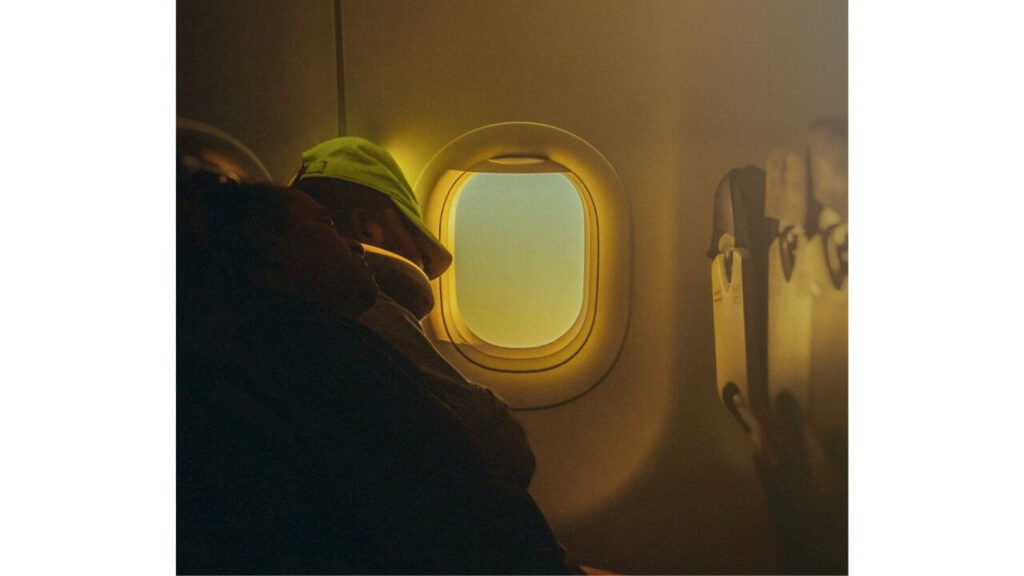
- Adjust their sleep schedules a few days before departure to gradually align with the destination time zone.
- Try to sleep on the plane if it’s nighttime at the destination.
- Use natural light to help reset the body’s clock upon arrival.
- Plan a relaxed schedule for the first few days to allow for adequate rest.
By taking advantage of services aimed at assisting senior travelers and by planning for comfort and health needs during the flight, seniors can arrive at their destination feeling refreshed and ready to enjoy their travels.
Safety and Security
Traveling in Asia offers a rich tapestry of cultures and experiences, but senior travelers must remain vigilant regarding safety and security. Here’s a guide to staying safe:
Common Tourist Scams in Asia: Be aware of scams such as overpriced tours, fake officials demanding fines, rigged meters in taxis, and “broken” ATM helpers. Research common scams in specific destinations before traveling and always remain cautious when offered unsolicited help or deals that seem too good to be true.
Keeping Valuables Safe: Use hotel safes for important documents and expensive items. Carry money and documents in a secure, concealed travel pouch when out and about. Avoid displaying jewelry or large amounts of cash that may draw attention.
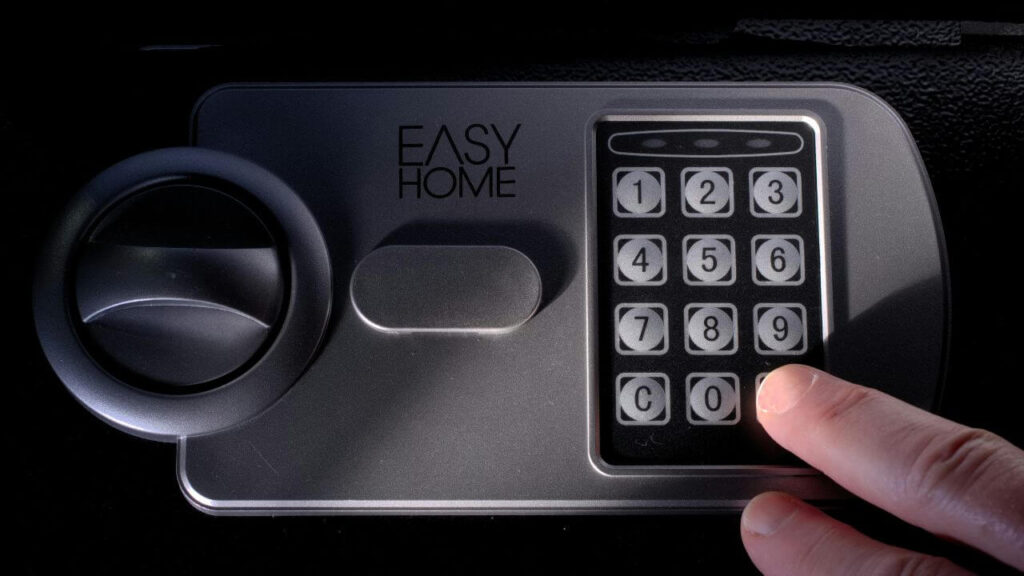
Food and Water Safety: Stick to bottled or purified water, as tap water may not be safe for drinking. Eat at reputable restaurants, and when trying street food, choose busy stalls where high turnover means food is less likely to be contaminated.
Sun Protection and Heatstroke Prevention: Protect against the sun with broad-spectrum sunscreen, a wide-brimmed hat, and sunglasses. Stay hydrated and take breaks in the shade to avoid heatstroke, particularly during the hottest parts of the day.
Coping with Local Healthcare Systems: Know the location of accredited hospitals or clinics at your destination. Carry a list of your medical conditions, medications, allergies, and blood type. Consider enrolling in a service that provides medical consultation for travelers.
Local Laws and Customs: Familiarize yourself with local laws and customs to avoid inadvertently offending someone or breaking the law. Some behaviors that are acceptable in your home country may not be in parts of Asia.
Returning Home
After an enriching sojourn in Asia, returning home safely is just as important as the preparation for the journey. One of the crucial steps upon return is a post-travel health check, particularly for senior travelers. Here’s a brief guide on how to approach this:
Post-travel Health Check
Upon returning from Asia, it’s wise for seniors to schedule a check-up with their healthcare provider, even if they feel well. This appointment is an opportunity to ensure that no health issues have arisen during their travels, especially since some travel-related illnesses may not present symptoms immediately.
Here are the components of a post-travel health check:
Discuss Your Trip: Share details of your trip with your healthcare provider, including places visited, activities engaged in, and any incidents that occurred, such as insect bites, injuries, or illnesses.
Review of Symptoms: Mention any symptoms you’ve experienced during or after the trip, no matter how minor they seem. This includes gastrointestinal issues, fevers, rashes, or respiratory problems.
Routine Tests: Your doctor may recommend routine blood tests or specific screenings for conditions such as malaria or dengue fever, depending on where you traveled and what symptoms you’re experiencing.

Medication Reassessment: Review any travel-related medications you were taking, such as antimalarials or antibiotics, and discuss whether you need to continue or adjust them.
Vaccination Update: If you received any vaccines before your trip, your doctor could update your medical records and discuss any boosters you might need.
Chronic Conditions Management: If you have chronic conditions, it’s important to assess how they were managed while away and if any adjustments to treatment are needed after returning.
Mental Health: Travel can be stressful, and it’s not uncommon to feel a bit out of sorts upon returning home. Discuss any concerns with your healthcare provider, who can help differentiate between normal post-travel fatigue and more serious issues.
This post-travel health check is a preventative measure to catch any issues early and ensure that the senior traveler remains healthy after their international adventure. It’s a vital step in the travel process that safeguards the traveler’s well-being, ensuring that the memories of the journey are the only lasting effects of a fantastic trip.
Bonus Tip- Hire a good travel agent
For senior travelers venturing into the enchanting landscapes of Asia, a good travel agent can be the key to unlocking a seamless and enriching travel experience. A proficient travel agent serves as a booking facilitator and a personal travel advocate, ensuring that every aspect of the journey caters to the senior traveler’s comfort, interests, and needs.
When selecting a travel agent for your Asian adventure, prioritize those with expertise in senior travel. They’ll offer invaluable insights into senior-friendly accommodations, the best times to visit various destinations and the most comfortable modes of transportation. They’ll also navigate the complexities of travel insurance, visa requirements, and health precautions on your behalf.
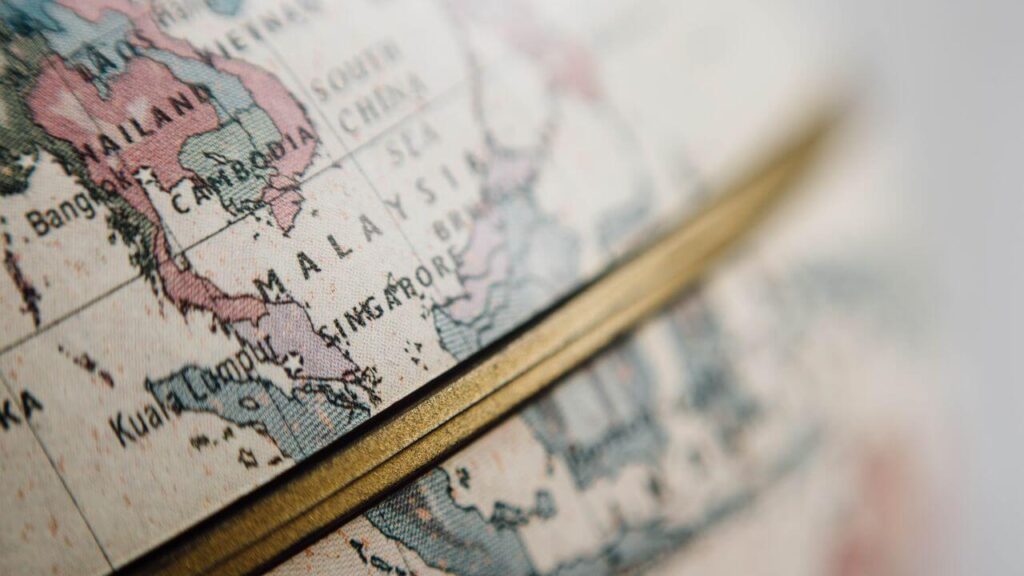
A dedicated travel agent will tailor your itinerary with a pace that suits you, incorporating rest days and choosing experiences that are both culturally immersive and manageable. They will consider the availability of essential services, such as healthcare facilities, and even advise on the best spots for relaxation and leisure.
In short, a good travel agent for a senior traveling in Asia is a luxury and a resource that adds depth, safety, and ease to the travel experience, allowing you to explore this vibrant continent with confidence and comfort.
Travel is a remarkable journey of discovery, particularly for senior adventurers who bring a wealth of experience to every new horizon. The golden years can truly be a golden opportunity to explore, learn, and grow. By taking the necessary precautions, planning thoroughly, and staying informed, senior travelers can embrace the vast and vibrant continent of Asia with confidence and safety.
We hope these Senior-Friendly Travel tips help you plan your Asia adventure easily. We also wrote about the Best indoor Activities for All Ages in Asia.

